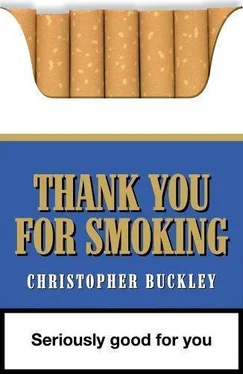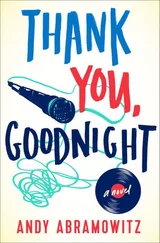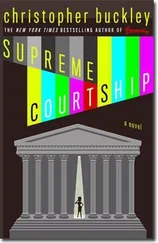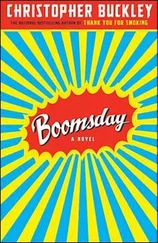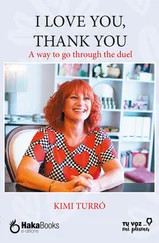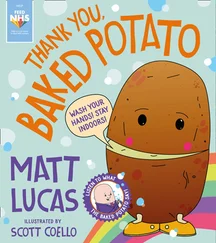"I'd say you've made a splendid impression, Nick," the Captain glowed as the last of Nick's admirers had receded. "May I call you Nick? I do not usually engage in diminutives, but in this case I would like to. You remind me just a little bit of myself when I was your age."
"Please," Nick said, embarrassed, "by all means." "You were a television reporter, before?"
Nick flushed. Well, there was no escaping it. It would be in his obituary. It was Naylor who, as a local Washington TV reporter, announced on live television that the President had choked on a piece of meat at a military base and died, causing the stock market to drop 180 points and lose $3 billion worth of value before the White House produced the President, alive. The best he could hope for was to accomplish something else in life that would relegate that to the second paragraph.
"That was a long time ago," Nick said.
The Captain held up his hand. "You don't have to explain it to me. In your shoes I probably would have done the same thing. One does have to seize the day. JJ told me all about it. That's why he hired you. Knew exactly what he was doing."
"He did?"
"Damn right. Whatever else JJ was, and I regret that I had to let him go, he was a student of the human condition. He said to me, 'That boy is going to work his behind off putting this thing behind him, making a new name for himself.' "
"Other than the Three Billion Dollar Man."
"He said something else. He said, 'That boy is going to be one angry young man.' I didn't realize just how angry until I watched you yesterday on that colored woman's show, Obrah. Son, you were magnificent."
"Thank you."
"I was angry, too, when I got back from Korea. Do you know why, Mister Naylor?" "No sir."
"Because I resolved that I would never — ever — again be put in a situation where I had to submit to the authority of incompetent men. I started in the flues and within five years I was a vice president, the youngest vice president in corporate tobacco history. That, sir, is what anger can do for you. Join me in a brandy, won't you."
Once again the drinks materialized out of air, borne on a silver tray. What a club! And the waiters didn't introduce themselves to you by their first name. They were everything waiters should be: subservient, efficient, taciturn.
"Do you enjoy your work, Nick?"
"Yes," Nick said. "It's challenging. As we say around the office, 'If you can do tobacco, you can do anything.' "
The Captain snorted into his snifter. "You know, your generation of tobacco men — and women, I'm always forgetting to add 'and women'—think they have it harder than any generation who came before. You think it all began in nineteen fifty-two. Well, puh!"
Puh?
"It's been going on for almost five hundred years. Does the name Rodrigo de Jerez mean anything to you?" Nick shook his head. "No, I suppose it doesn't. I suppose they don't teach history in the schools anymore, just attitude. Well, for your information, sir, Rodrigo de Jerez went ashore with Christopher Columbus. And he watched the natives 'drink smoke,' as he put it, with their pipes. He brought tobacco back to the Old World with him. Sang its praises high to the frescoed ceilings. Do you know what happened to him? The Spanish Inquisition put him in jail for it. They said it was a 'devilish habit.' You think you have it bad having to deal with the Federal Trade Commission? How would you like to have to state your case before the Spanish Inquisition?" "Well. "
"You bet you would not. Remember that name, Rodrigo de Jerez. You're walking in his footsteps. He was the first tobacco spokesman. I suppose he, too, found it 'challenging.' "
"Uh. "
"Does the name Edwin Proon mean anything to you?" "Prune?"
"God in heaven, the billions of dollars we throw at the public schools. Edwin Proon lived in the Massachusetts Colony in the early 1600s when the Puritan fathers were going around nailing up the first no-smoking signs in the New World. You think you're the first to have to deal with building restrictions and public ordinances? No sir, I do not reckon that you are. Edwin Proon was fighting that battle long ago. They passed a law saying you couldn't smoke in public and 'public' meant anywhere more than one person was present. They put him in the stocks. And when they caught him smoking in the stocks they clamped an iron hood over his face. Do you suppose Edwin Proon found it 'challenging'?"
Fasten your seat belts, Nick thought, we have four hundred more years to go. In detail, the Captain reminded him that America had waged outright war against the "pernicious practice" — in the 1790s, the 1850s, the 1880s. He reminded him that Horace Greeley had called a cigar "a fire at one end and a fool at the other," that Thomas Edison had refused to hire smokers, that in this very century, Americans — and not just women — had actually been arrested for the act of lighting a cigarette. On and on it went until little beads of perspiration appeared on the Captain's forehead, like julep sweat. Finally he stopped and patted his brow with his handkerchief.
"Forgive me. I seem to have this tendency since the operation to get. exercised. By the way, never get sick in California. Least nothing that requires surgery. They don't know the first thing about surgery. There was nothing wrong with me that a little bicarbonate of soda would not have rectified."
They discussed the hypocrisy and villainy of Region 11 politicians. Almost all the anti-smoking ordinances came out of Region 11, California, Reichland of the Health Nazis. What justice was possible when Californians were allowed to determine national health standards?
"You know who Lucy Page Gaston was?" the Captain asked with one of his penetrating, interrogatory stares.
No, Nick did not know who Lucy Page Gaston was.
"She came out of the Temperance Union movement in the 1890s looking for more souls to save. She had six hundred cigarette vendors in Chicago arrested for selling to minors. Founded the Anti-Cigarette League. In 1913 she and some doctor started a clinic where they dragged in poor newspaper boys off the street and swabbed their throats with silver nitrate and told 'em to chew on gentian root whenever they got the urge. Now we got these damned patches. In 1919 she wrote Queen Mary and President Harding and asked them to stop smoking. What crust! Announced she was running for President. In 1924 she was struck down by a streetcar in Chicago coming out of an anti-cigarette meeting. She survived. She died eight months later. Do you know what she died of, Nick?"
"No, sir."
The Captain smiled. "Throat cancer. Do you know what that proves, Nick? It proves that there is a God."
Outside the Club the Captain declared that since it was such a fine spring day he felt like strolling. So they strolled, with the Captain's car following slowly along.
"Tell me," he asked, "what is your opinion of BR?" He added, "Just 'tween us girls."
Suddenly the sidewalk was strewn with large banana peels. "BR," said Nick, "is. my boss."
The Captain gave a little bemused grunt. "Well, I like to think that I'm your boss, son."
Son?
"But I do admire loyalty in a man. I esteem loyalty. I can forgive almost anything in a man if he's loyal." They walked along. He stopped to examine some vines. "We should have the wisteria in three weeks. There's no smell like it. I imagine heaven smells like wisteria. BR's got this notion we ought to start bribing producers in
Hollywood to make their actors smoke. Interesting notion. Year from now we may have a total advertising ban. He thinks this is the way around it. Cheaper, too, probably. We're spending almost a billion dollars a year in advertising now as it is. What do you think?"
Читать дальше
